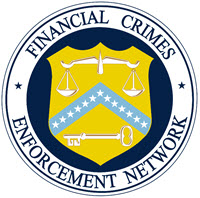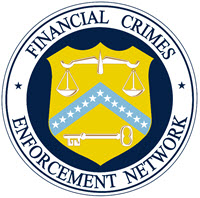The House Financial Services Committee this week passed the Corporate Transparency Act of 2019 ( H.R. 2513), which would require corporations and limited liability companies (LLCs) to report their beneficial owners to the Treasury Department’s Financial Crimes Enforcement Network (FinCEN). The bill – introduced by Reps. Carolyn Maloney (D-NY) and Peter King (R-NY) – would shift the FinCEN reporting requirements from banks to the business community, requiring every business with fewer than 20 employees to register their beneficial owners with FinCEN . ( Roundtable Weekly , May 24)
 |
|
The House Financial Services Committee this week passed the Corporate Transparency Act of 2019 ( H.R. 2513 ), which would require corporations and limited liability companies (LLCs) to report their beneficial owners to the Treasury Department’s Financial Crimes Enforcement Network (FinCEN). |
- H.R. 2513 would also mandate that businesses update beneficial ownership information with any changes (home or business address, driver’s license change, change in ownership) within 60 days, and annually for the life of the business. Failure to comply with these reporting requirements would be a federal crime with civil penalties of up to $10,000 and criminal penalties of up to three years in prison.
- The legislation, which passed the committee by a vote of 43-16, would exempt public companies, tax-exempt non-profits, and firms in highly regulated industries like banking from the reporting requirements. (CQ, June 13 and Roll Call, “House panel advances anti-money laundering bill with only some GOP support“)
- A coalition that includes The Real Estate Roundtable sent a letter June 10 to the committee’s leadership opposing the Maloney-King bill. “This legislation would impose burdensome, duplicative reporting burdens on approximately 4.9 million small businesses in the United States and threatens the privacy of law abiding, legitimate small business owners,” the letter states.
- The coalition emphasizes that it supports the overall goal of preventing wrongdoers from exploiting United States corporations and LLCs for criminal gain. Yet the coalition letter details significant problems with H.R. 2513.
- One major challenge is that the legislation would shift reporting requirements from large banks-those best equipped to handle the reporting requirements-to millions of small businesses-those least equipped to handle the reporting requirements.
- The coalition also notes the bill presents privacy, data breach and cybersecurity risks for millions of small businesses in the United States.
- On May 9, the House Financial Services Committee unanimously approved legislation entitled the “Coordinating Oversight, Upgrading and Innovating Technology, and Examiner Reform Act” or the “COUNTER Act.” The bill (H.R. 2514) would require financial institutions to determine the beneficial owners involved in certain commercial real estate transactions – similar to a FinCEN Geographic Targeting Order requirement affecting residential purchases. (CQ, May 9 and (Roundtable Weekly, May 24)
- The Roundtable also raised concerns in February about beneficial ownership reporting requirements and the potential burdens they place on the real estate industry. (Coalition letter – Feb. 6, 2018).
- In the Senate, the Improving Laundering Laws and Increasing Comprehensive Information Tracking of Criminal Activity in Shell Holdings (ILLICIT CASH) Act was introduced this week by Sens. Mark Warner (D-VA), Tom Cotton (R-AR), Doug Jones (D-AL) and Mike Rounds (R-SD). (Homeland Preparedness News, June 12)
- The Senate Banking Committee will hold a June 20 hearing on “Outside Perspectives on the Collection of Beneficial Ownership Information.”
The Roundtable will continue to work with policymakers to stake out a balanced position on the issue that would inhibit illicit money laundering activity but does not place unnecessary costs and legal burdens on the real estate industry.

